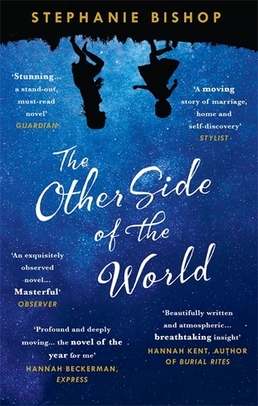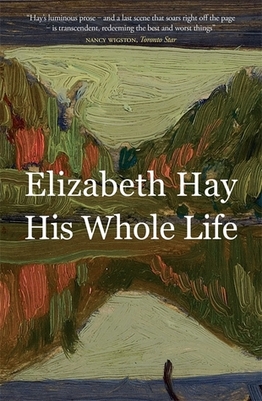Charlotte is disorientated by early motherhood, and shocked by the discovery of another pregnancy, when her husband, Henry, suggests they emigrate to Australia. The glossy brochure promises sunshine – both literal and metaphorical – and, in the early 1960s, the British can secure a passage for a mere £10. Charlotte doesn’t mind grey skies and rain; in fact, they are the bedrock of her painting, a calling she hopes to rekindle when mothering gives her back herself. But, born and bred in India, Henry yearns for the warmth of the sun. Before she knows it, Charlotte is installed with her two daughters in suburban Perth, estranged from both herself, the climate and the sandy land.
Loosely based on the story of her grandparents, The Other Side of the World is a poignant novel about nostalgia, the entrapment of motherhood and the complications of a marriage between people with opposing assumptions of what constitutes a good life, and with unacknowledged racism bringing in additional strain. It’s an engaging and undemanding read that takes us on a journey from the Cambridgeshire (the university and the fens) to Australia (Perth) and to India (Delhi and Simla). Thanks to Tinder Press for my review copy.
My surprise when Charlotte misplaces something in the freezer in their damp English cottage – we didn’t even have a fridge in our house in the 60s – echoes the generational and geographical discontinuities between the participants in Irene Waters’ Times Past project on Women’s Work. The novel also sparked off memories of my best friend when I was six who emigrated to New Zealand (I know, it’s a different country, but still on the other side of the world) on a similar system, and came back for a visit as a teenager with a strange accent and an air of sophistication.
For another novel on migration to Australia, see my review of Elemental.
Jim is a bright spark, more comfortable around adults than children, especially now he’s done “the worst thing” too dreadful to confess. We meet him first aged ten motoring with his American father and Canadian mother from New York to Ontario to spend the last days of summer at his uncle’s lakeside idyll. Circumstances conspire to enable him to spend the whole of the following summer there with his mother and her eccentric childhood friend, Lulu (sparking echoes for me of The Lauras, although Jim is more fortunate than Alex in forging his own relationship with his mother’s friend). Then, just as Jim’s mother, Nancy, is contemplating the two of them staying on at the rural retreat, enabling him to go to school from there, his father’s health scare drags them back to the city.
As a plot, that might not seem particularly inspiring, but His Whole Life is a delightful novel; the poignancy of the human condition laid bare by an experienced (this is her fifth novel) and empathic novelist. Although we enter the minds of several characters, Jim’s observations of the adults, as he learns from them the pains and pleasures of being human, are the most endearing. For example, on Lulu’s difficult relationship with her brother (p59):
Guy’s iron regard bore down on her and Lulu was no match for him. She had no comeback. She cared too much. She would always lose. Jim knew this in an instant. He had seen it in the schoolyard. It had happened to him, both the shunning been shunned. What it meant, he realized, was that this stuff never ended. It kept on until you were dead.
And this on the differences in character between Lulu and his mother (p95):
Her reminiscing voice was different from his mother’s. His mothers came from a place where she wanted to be, while Lulu’s seemed to rise out of sharp rocks jumbled all about.
George, Jim’s father is something of a misery guts, although almost redeemed by his dedication to his work with the underdogs, and his love for Jim. It’s easy to see how Nancy might want to leave him, but the enormity of such separation (and likewise the rift in Lulu’s family) is underlined by the parallels with the political situation that is as much a setting for this novel as the urban and rural landscapes between which Jim feels torn. As iterated in an author’s note, His Whole Life “has close to its heart the 1995 referendum on Quebec independence that came within a hair of succeeding”. I’ve only ever been to Canada in my reading, but after Britain’s referendum on leaving the European Union, it wasn’t difficult to empathise with Nancy’s fear of her beloved country’s disintegration.
His Whole Life is published by MacLehose Press to whom thanks for my review copy.























 RSS Feed
RSS Feed





















